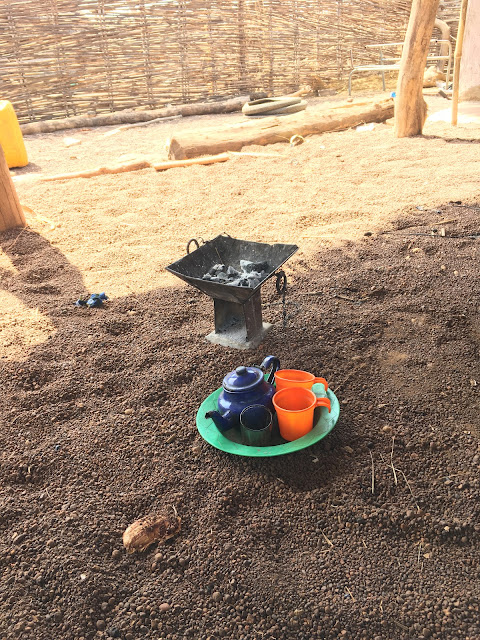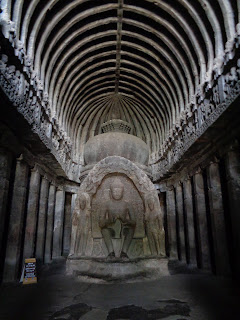Books: March 2021 Update
Here are some book reviews from January and February:
The Last Juror
I listened to this on audiobook, and while I did finish it, I found myself rolling my eyes a lot throughout. I really enjoyed some of the John Grisham I read in Senegal (with minimal eye-rolling at the cheesiness of some of the lines), but this thriller was almost too much for me. The characters that exactly fit their racial stereotypes, the narrator's short fling with an attractive woman who just happened to cross paths with him, and a plot that was good but not great made this novel not worth recommending. If you are going to read Grisham, pick something else.
The Last Great Road Bum
This was a fantastic book recommended to me by a family member. The story follows Joe Sanderson from his home in Illinois to a myriad of destinations around the world. Joe travels around the world, sometimes living off of modest savings, sometimes getting a job, sometimes living off of the generosity of others. His story ends with over a year in El Salvador aiding and fighting with guerrilla forces. Throughout it all, he mails letters home to his mom, who worries endlessly about what her son is doing so far away from home. The book is technically a novel, as Tobar constructed the book from interviews and letters, but it is all based in as many facts as are available about Joe's unusual life. A great read if you are interested in traveling and/or want an inside account of some of the fighting that took place in El Salvador in the 1980's. Reading Road Bum interested me in reading Deep Dark Down, an account of the 33 Chilean miners that were trapped underground for over two months in 2010.
Where the Crawdads Sing
This novel follows the interweaving stories of Kya, a girl who grows up in the marsh of North Carolina with almost no family and almost no friends, and the death of a man from the nearby town, Chase. This is not a novel with twists and turns every page, but one where we slowly learn about the characters over the course of chapters, observing their lives just as Kya observes and catalogues every living thing in the marsh that is her home. While reading, I generally knew who and what I was rooting for, but I was powerless to stop the impending events that come to hurt Kya throughout the book. I cared about the characters and could not help but become enveloped in their lives as they unfolded one day at a time. I listened to this as an audiobook and really loved it. The reader (not the author) was fantastic all-around and performed voices for the characters' dialogue that enhanced the audiobook experience. Recommended as an audiobook, though I am sure reading the physical book would be great as well.
Growing a Revolution
In Growing a Revolution, Montgomery gives a deep and well-researched summary of conservation agriculture around the world and its potential to improve our lives. Conservation agriculture is a way of growing food that is based on three main principles: minimum soil disturbance (no-till), soil cover (cover crops and mulch), and crop rotation. If all three practices are performed together, conservation agriculture has been shown in a variety of climates and crop systems to improve yields, reduce the need for fertilizer and pesticides, reduce fuel use, and increase farmers' profits. Many farmers around the US and around the world are beginning to adopt these principles or are doubling down on their current conservation agriculture techniques. Montgomery visits many of the farmers and researchers who are using and studying conservation agriculture; they are proving to neighboring farmers, leading by example, that the future of farming lies in conservation agriculture. This was a great read and I highly recommended picking it up if you are interested in agriculture.
Walden on Wheels
In this memoir, Ken Ilguans describes how he overcame his student debt. He worked long hours at a variety of low-wage jobs--many of which were in Alaska--and had many epiphanies about life along the way. The memoir culminates with Ilgunas' return to graduate school, determined to live debt-free and to drastically reduce his costs by living in a van on campus. While Ilgunas articulates well some interesting discoveries about the benefits of living simply, the memoir did not feel like it had any stakes. The "hook" of action that is dangled in the prologue is a tense moment when a campus security guard walks by his van at night and gives Ken the idea that he might be discovered and forced to move into an apartment. The conclusion of this scene in the book was anticlimactic, but even before I found out how the action played out, I realized that I did not really care much if Ken was caught living in his van. The problems that Ilguans faced, while very important in his life, did not feel like they warranted a moderately well-written philosophical memoir. A young, white male from a middle or upper-middle class family is not likely to have a story that will fully grip me unless he has chosen quite a unique path in life or is an exceptional writer (see The Last Great Road Bum). I am fully aware that I am a writer who fits this demographic category. A quick read with some interesting anecdotes and ideas, but you could definitely learn more from choosing a different memoir.




Comments
Post a Comment